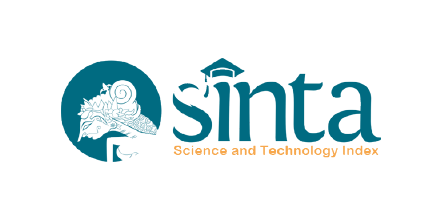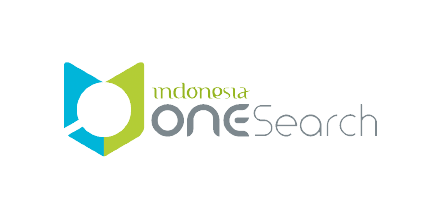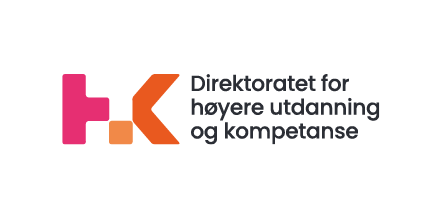Community-based Approach to Empower People with Disabilities
DOI:
https://doi.org/10.21776/ub.ijds.2021.008.02.12Keywords:
Community-based Approach, Empowerment, People with disabilitiesAbstract
This article seeks to understand the empowerment issues of persons with disabilities. Various development programs have been implemented to reduce stigma, prejudice and stereotypes that impede persons with disabilities from having greater access to education, employment or the labor markets and public services. However, research findings showed that many interventions and strategies to address disability issues focus more on individual or medical models. As a consequence, public stigma and social exclusion of persons with disabilities continue to occur, preventing them from participating in various activities in the society including in the tourism sector. The purpose of this study is to identify social reasons that lead to exclusion and lack of empowerment, as well as to establish programs at the community level to increase the engagements of persons with disabilities in tourist attractions and tourist destinations in Malang. The result of the study shows that the insufficient skills and knowledge of the community members of Desa Kalisanga (nicknamed Kampung Cempluk) in communicating and interacting with persons with disabilities cause the lack of awareness in regard to disability issues. Using macro perspective, this study exhibits community-based approach which requires participation of community members in the planning and organizing an inclusive arts and music festival in Kampung Cempluk. The community was successfully provided various accessibility facilities needed by persons with disabilities to participate, both attending and performing at the festival. This study shows that community-based approach could be employed as a model or strategy to empower persons with disabilities by providing them with equal opportunities to participate in tourist attractions or other activities in the society and wider access to tourist destinations and other public facilities.
References
Arnstein, S. (1969). A Ladder of Citizen Participation. AIP JOurnal, 35.
Baber, K., & Bean, G. (2009). Frameworks: A Community-based Approach to Preventing Youth Suicide. Journal of Community Psychology, 37(6).
Bendell, J. (2005). In whose name? The accountability of corporate social responsibility. Development in Practice, 15(3-4), 362-374. https://doi.org/10.1080/09614520500075813.
Bhattacharyya, J. (2004). Theorizing Community Development. In Community Development Society. Journal (Vol. 34). https://doi.org/10.1080/15575330409490110
Chaskin, R. J., Brown, P., Venkatesh, S., & Vidal, A. (2001). Building Community Capacity (Modern Applications of Social Work Series). New York: Roultedge.
Chaudry, V. (2005). Examining Inclusion: Disability and Community Driven Development. World Bank, May (100).
Division for Social Policy and Development (DSPD). (2017). Culture, Beliefs, and Disability. In United Nation.
Elwan, A. (1999). Poverty and Disability: A Survey of the Literature, SP Discussion Paper No. 9932. World Bank, (9932).
Kenny, S. (2006). Developing Communities: For the Future. Melbourne: Thomson.
Kuper, H., Saran, A., White, H., Adona, J., Ashley De La Cruz, N., Kanojia, Y., Wapling, L. (2018). Rapid Evidence Assessment (REA) of What Works to Improve Educational Outcomes for People with Disabilities in Low-and Middle-Income Countries With support from. Campbell Collaboration: New Delhi, and International Centre for Evidence on Disability: London.
Macdonald, D. (1995). NGOs and the Problematic Discourse of Participation: Cases from Costa Rica. In D. B. Moore & G. Schimtz (Eds.), Debating Development Discourse: Institutional and Popular Perspetive. New York: St. Martin's Press.
Mont, D. (2004). Disability Employment Policy (No. 0413). Washington, DC.
Mostert, M. P. (2016). Stigma as barrier to the implementation of the Convention on The Rights of Persons with Disabilities in Africa. African Disability Rights Year Book, 4, 3-41. Retrieved from http://www.adry.up.ac.za/images/adry/volume4_2016/adry_2016_4_chapter1.pdf
Onyx, J., & Beton, P. (1995). Community Empowerment: A Reader In Participation an Development. In G. C & M. M (Eds.), Empowerment and Ageing: Toward Honoured Places for Crones and Sages (pp. 46-58). Atlantic Highlands: Zed Books.
Oyugi, O. B., Mavole, J. N., Okuku, M. T., & Muhini, W. N. (2018). Sustainability of People Living With Disabilities Empowerment Projects in International Journal of Social and. International Journal of Social and Development Concerns, 3(October).
Rahman, H. A. (2018). Community Based Approach Towards Disaster Management in Malaysia. Asian Journal of Environment, History and Heritage, 2(2), 55-66.
Rohwerder, B. (2018). Disability stigma in developing countries. K4D Helpdesk Report, 26. Retrieved from https://assets.publishing.service.gov.uk/media/5b18fe3240f0b634aec30791/Disability_stigma_in_developing_countries.pdf
Saran, A., White, H., & Kuper, H. (2020). Evidence and gap map of studies assessing the effectiveness of interventions for people with disabilities in low-and middle-income countries. Campbell Systematic Reviews, 16(1). https://doi.org/10.1002/cl2.1070
Scior, K., & Werner, S. (2016). Interventions aimed at tackling intellectual disability stigma: What works and what still needs to be done. In Intellectual Disability and Stigma: Stepping Out from the Margins (pp. 1-230). https://doi.org/10.1057/978-1-137-52499-7
Swanepoel, H., & De Beer, F. (2000). Introduction to Development Studies. Cape Town: Oxford University Press Southern Africa.
Tolkach, D., King, B., & Pearlman, M. (2013). An Attribute-Based Approach to Classifying Community-Based Tourism Networks. Tourism Planning and Development, 10(3), 319-337. https://doi.org/10.1080/21568316.2012.747985
United Nation. (2016). Arsenic and the 2030 Agenda for sustainable development. In United Nation. https://doi.org/10.1201/b20466-7
United Nation. (2017). Convention on the Rights of Persons with Disabilities and Optional Protocol. In United Nation. https://doi.org/10.5463/DCID.v29i4.656
Wismer, S., & Mitchell, B. (2005). Community-based approaches to resource and environmental management. Environments, 33(1), 1-4.
World Bank. (2007). Social Analysis and Disability: A Guidance Note. Washington, DC.
World Health Organization. (2011). Summary World Report On Disability. World Health, 1-24. Retrieved from www.who.int/about/licensing/copyright_form/en/index.html%0Ahttp://www.larchetoronto.org/wordpress/wp-content/uploads/2012/01/launch-of-World-Report-on-Disability-Jan-27-121.pdf
Downloads
Published
How to Cite
Issue
Section
License
Copyright (c) 2021 Anif Fatma Chawa, Moch Hisyam Putra, Dano Purba

This work is licensed under a Creative Commons Attribution-NonCommercial 4.0 International License.















